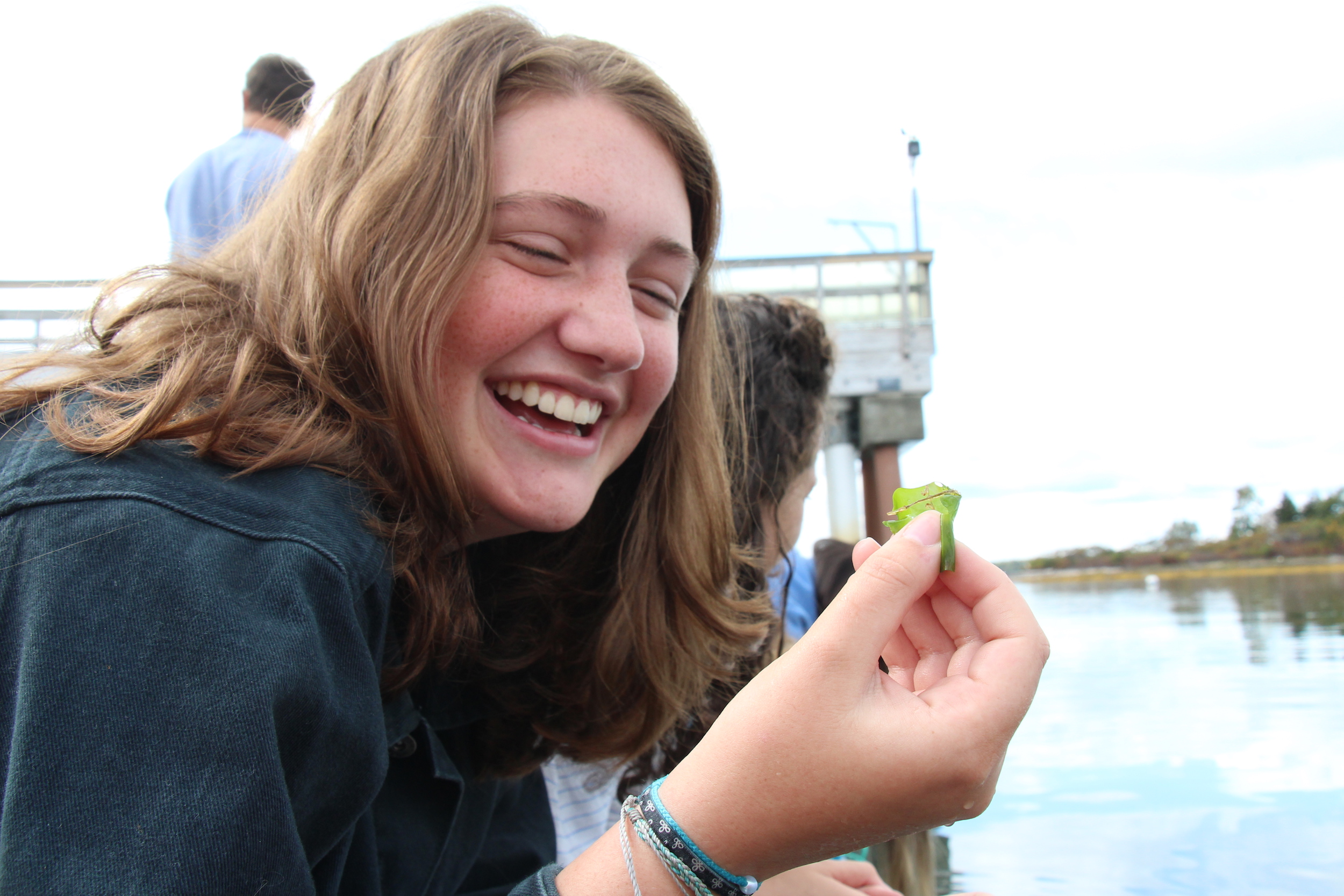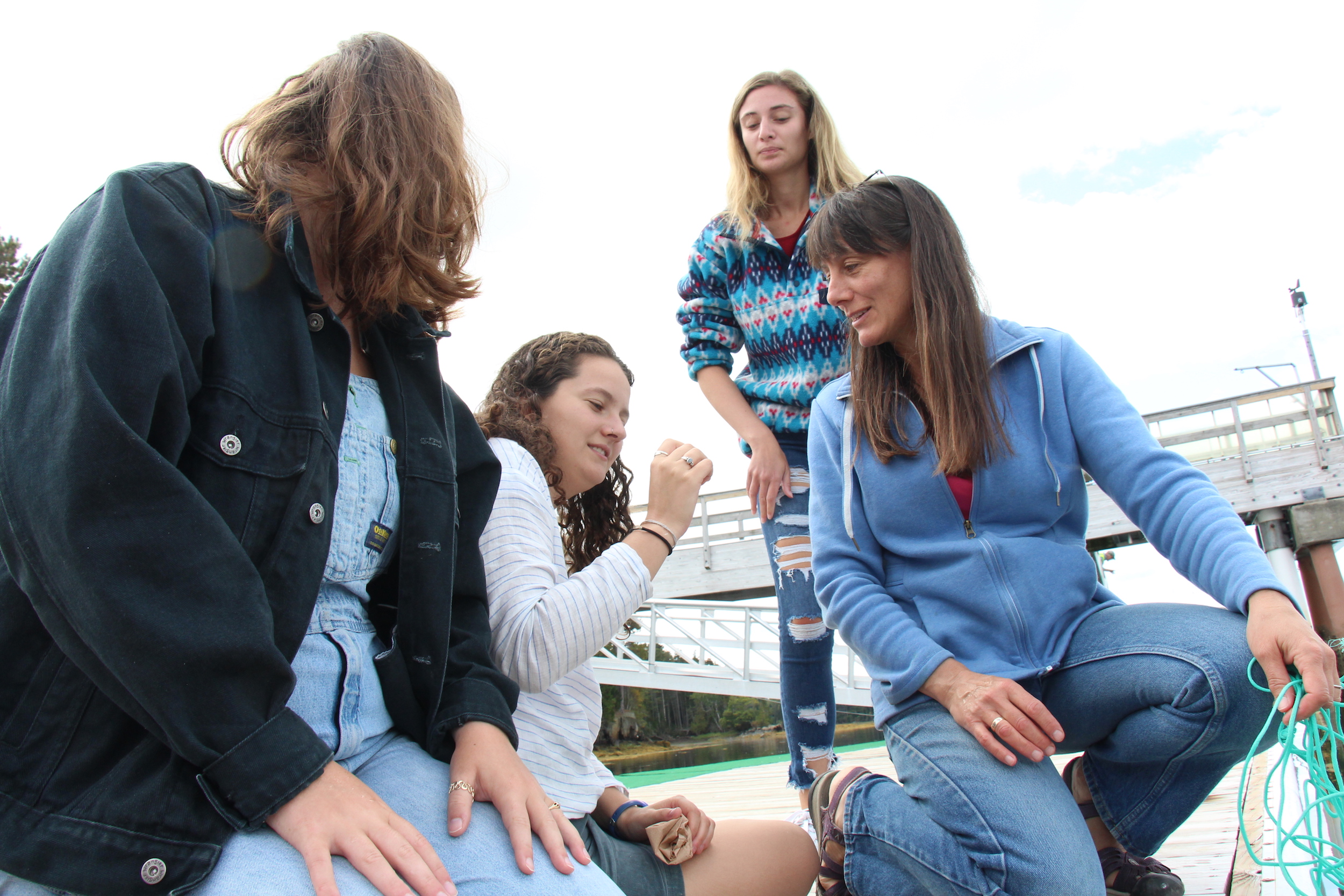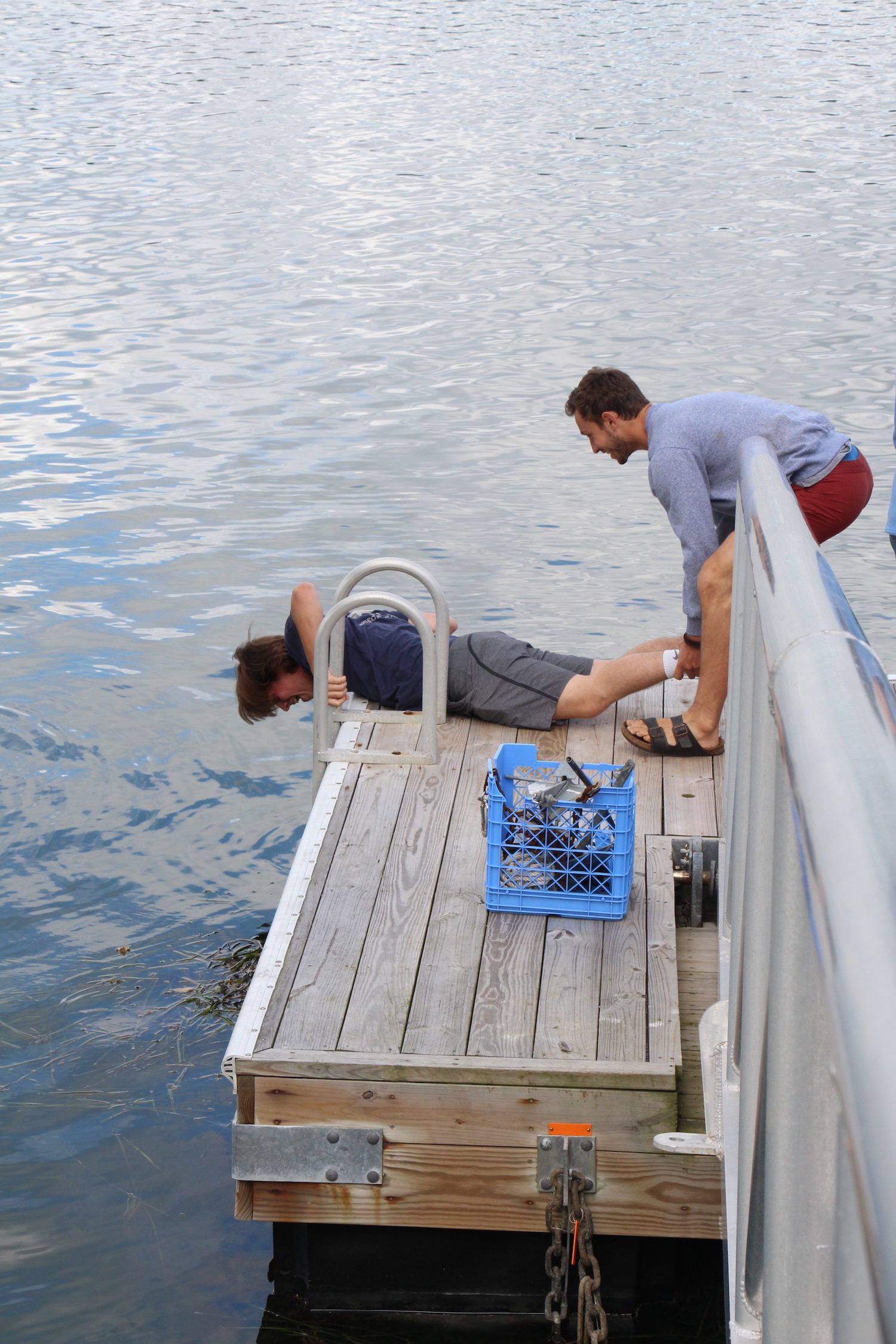Students dive into Bowdoin Marine Science Semester
September 27, 2019
 Mindy Leder
Mindy LederEvery weekday morning this semester, nine Bowdoin students pile into minivans to travel to their classroom: the Schiller Coastal Studies Center. Swapping laptops for test tubes and sneakers for rubber boots, students in Bowdoin Marine Science Semester (BMSS) explore coastal environments through a hands-on, intimate semester-long experience.
From Monday through Friday, BMSS students spend six hours at the College’s 118-acre facility on Orr’s Island, taking classes on benthic ecology, methods in ocean change ecology, history and marine science. Students take one course at a time, with each lasting about a month. Instead of a final exam, the semester culminates in an independent study project.
“A large component of the Marine Science Semester is students’ projects,” said Olaf Ellers, a research associate in the biology department. “They have to come up with original projects, so we want to provide an opportunity for them to think about the existing scientific literature in fields that are particularly interesting.”
Due to the small class size, daily assignments are largely driven by student interests. This allows instructors to engage directly with students and provides more freedom regarding the content and structure of classes.
“There’s definitely a structure to [the classes], but if there’s a really good tide, and we need to hit it, we’re going to hit that and then we’ll get back to what we’re doing. If something with our research comes up, we’re going to do that,” Sophie Walton ’21 said. “It’s just one thing you’re focusing on at a time, with an independent research project woven throughout [that] ties everything together.”
Research projects vary from student to student, ranging from clam filter feeding to microscopic colony organisms. Participants are given free rein to pursue their passions.
“I’ve never seen people get so excited about getting in the mud with giant boots and then getting these samples of things that you can’t even see with your eyes,” Benjamin Felser ’22 said. “[They] light up when they’re talking about microbes.”
The program also emphasizes field work and hands-on learning.
“We’ve been doing more fieldwork than I’ve done in my entire life in [the] weeks we’ve had,” Felser said. “It’s much more about experiential learning [and] modeling what it’s like to be a scientist.”
Students collect data and conduct labs and observations directly from the Maine environment.
“It’s a very intimate learning experience, where you are continually working with data, working with your own data [and] working with local species and ecosystems. That’s really fun,” Scott Kuhnle ’22 said. “[There is] a really strong connection to the land and the locality of it.”
While the benefits of an intimate learning experience are evident, the program can also be isolating due to the time and energy BMSS demands.
“It is a huge time commitment. I would call it a kind of semester away from Bowdoin. Not a semester abroad or overseas, but it’s definitely a semester away,” Kuhnle said.
Felser also noted that participating in BMSS can limit the amount of time dedicated to on-campus activities.
 Mindy Leder
Mindy Leder“I have to make sacrifices. I can’t be as much a part of my extracurriculars that I want to be a part of, and I can’t see all my friends that I want to see all the time,” Felser said. “What I keep reminding myself is that I would have been much less happy knowing that I passed up this opportunity. I am now wrestling with some of the difficulties that accompany doing an intensive program like this, but it feels very worth it.”
Construction of a new dry laboratory, residence hall and dining facility began this summer at the Coastal Studies Center and is ongoing this fall. Besides some extra noise and safety precautions, participants said construction has not negatively impacted the program.
“It hasn’t impacted our research, and it hasn’t impacted the way that the classes run at all, except we wear yellow vests when we walk to the dock,” Felser said.
Walton joked about one of the recent effects of construction. “We were outside eating lunch, and they were digging up the sewage line. So they told us to leave for that.”
Ellers, the biology research associate, predicts that BMSS students won’t use the residence hall and that they will most likely be used solely by students conducting summer research.
“Many students don’t want to live out there [during the school year]. They spend all day there and all weekend with us,” Ellers said. “Many people said they’d like to come back to campus to have their social life.”
Some of that time is spent on field trips. This past weekend, BMSS students traveled to Kent Island, a Bowdoin-owned island in the Bay of Fundy in Canada. In October, they’ll snorkel in the coral reefs of Hawaii—for research purposes, of course.
“We’re not tanning on the beach in Hawaii, [we are] memorizing hundreds of Latin names and taxonomy for the species and stuff like that,” Kuhnle said.
From independent projects to local fieldwork and cross-country trips, BMSS offers students the opportunity to deeply immerse themselves in marine biology.
“It’s really cool. You have to be into what we’re doing [because] it’s a big commitment, but if you are into it, it’s really fun,” Walton said. “You don’t have to be a biology major. The only requirements are that you’ve taken intro bio and a math class. Theoretically, anybody could be in it. You just have to have a passion for it.”


Comments
Before submitting a comment, please review our comment policy. Some key points from the policy: